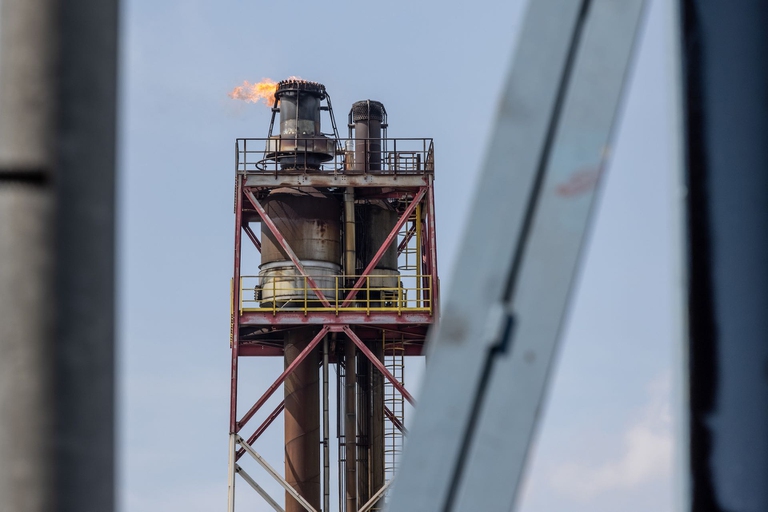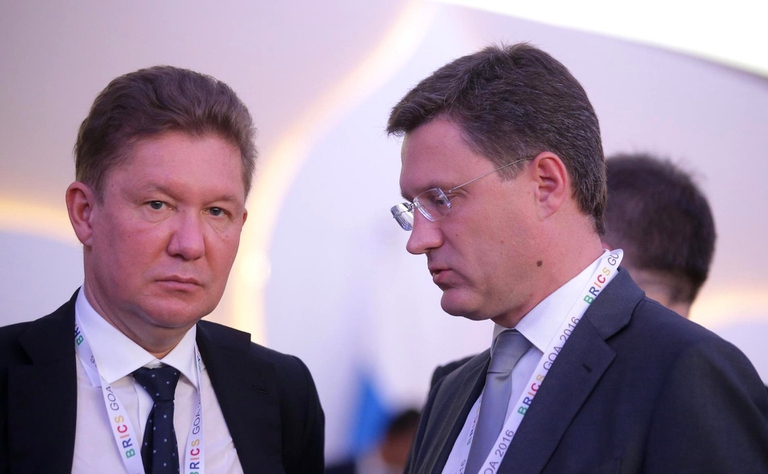https://www.lifegate.it/petrolio-russia-vietato
- |
They came into force on December 5th the European embargo and the price cap at the price of Russian oil, set at 60 dollars a barrel, 5% lower than the market price, as requested by the Polish government.I am crude oil imports banned by sea (not through oil pipelines) and according to the EU Commission's calculations this should block 94 percent of Moscow's crude oil destined for Western Europe.
Instead, the price cap approved on Friday 2 December by the G7 and the Council of the European Union - to which Australia was added - aims deprive Moscow of a major source of funding of the war against Ukraine.

Stop oil by sea
The embargo on Russian oil was decided in May this year but it became operational on December 5th.This prohibits importing oil by sea, from ships, but excludes imports via pipelines.
The Kremlin he announced possible interruptions to supplies for states that have joined the price cap:Russian Deputy Prime Minister Alexander Novak said Moscow would not allow companies to sell capped oil and was considering cutting production to offset losses from lower exports.
Before the invasion of Ukraine, the market required more than 1.5 million barrels per day:in the last four weeks the flow has dropped less than a fifth of the volume.For Ukraine, however, the measure is “too weak” And he won't be able to stop there Russia.Meanwhile in Italy, the refinery in Priolo, Sicily, owned by the Russian Lukoil was temporarily nationalized to allow the company to continue working.
How the oil price cap works
The President of the European Commission, Ursula von der Leyen, said that the price limit will reduce significantly Russia's revenues.“It will help us stabilize global energy prices, which will benefit emerging economies around the world,” von der Leyen said on Twitter, adding that the limit will be “adjustable over time” to react to market developments.
The price cap, explains the news agency Reuters, will allow non-European countries to continue to import Russian crude oil transported by sea, but will ban shipping and insurance companies from moving cargo worldwide unless it is sold at or below the price cap.Since major shipping and insurance companies are based in G7 countries, the price cap should make it harder for Moscow to sell its oil at a higher price.
The G7's initial proposal envisaged a maximum price of 65-70 dollars per barrel without any adjustment mechanism.Since Russian crude has already been trading at a lower price, Poland, Lithuania and Estonia have pushed to adopt a price cap which would reduce the Russians' revenues even further.Additionally, the price cap will be reviewed in mid-January and every two months thereafter.
The document also introduces a transition period of 45 days which applies to ships carrying Russian crude oil loaded before December 5 and unloaded at their final destination by January 19, 2023.

The Italian nationalization of Lukoil in Sicily
The introduction of the embargo on Russian oil would have blocked production at the Priolo refinery, which is located in the industrial area of Syracuse.A plant managed by Isab (Sicilian asphalt and bitumen industry), a company owned by the Russian giant Lukoil, which as a Russian is subject to the financial sanctions imposed against Moscow.In fact, since 5 December the company it can no longer buy barrels of Russian crude, for a long time the only supply market, putting 3000 jobs at risk (without considering the related industries, estimated at 10 thousand people).
In the previous weeks, the Italian government discussed various hypotheses and on the evening of Thursday 1 December the Italian Council of Ministers approved the decree which provides the temporary administration of the State for a maximum of one year, extendable for another 12 months.It is expected that Eni will indicate and support the extraordinary commissioner who will be appointed to supervise the operations.In this way, ISAB is allowed to search for other sellers of crude oil.
Priolo represents over a fifth of Italian refining capacity and supplies a quarter of Italy's road petrol.The idea of "nationalization" allows the Italian state to exercise effective control of the refinery through the golden power, which allows the government to protect strategic assets for the nation, while guaranteeing the necessary margin of maneuver for sales negotiations.
Meanwhile the Financial Times He explained that talks have resumed with the US private equity firm Crossbridge Energy Partners, which he is evaluating the acquisition of the plant for 1-1.5 billion euros.
There is a need for reconversion
The details of the sale are not yet known nor what Crossbridge will do with the Priolo refinery.But Crossbridge is a company that invests in conventional energy infrastructure suitable for conversion in systems consistent with the ecological transition:in biorefineries, for example, but also in used oil recycling plants and in technologies for biofuels and green hydrogen.
The hope is therefore that the Priolo refinery can become a sustainable hub because the transition needs new workers in the field of renewable energy.A conversion that not only concerns the production process but also the skills of the staff, who until now have had difficulty converting from the field of fossil fuels to renewable technologies.But without considering the training aspect of the workforce, the transition will not be possible.
